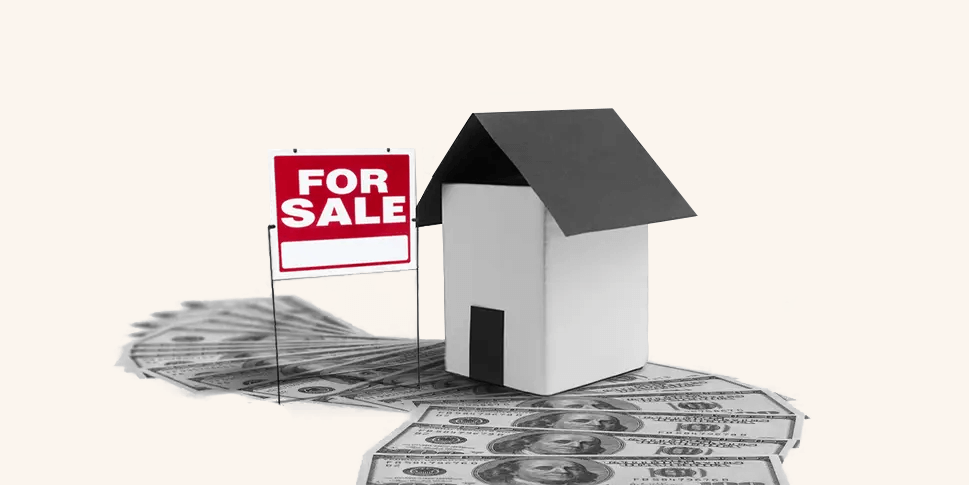As a homeowner planning to sell a home, you have options: list the property on the open market and pay a Realtor, try to sell the house without a Realtor (For Sale by Owner) or consider selling to a home investor.
Let’s consider each path forward and select the best one for you.
What distinguishes a normal homebuyer from an investor?
What an investor plans to do with the house after they purchase it is the largest distinction between them and the average homebuyer. For themselves and their family, the average homebuyer is searching for a place to call home.
Conversely, investors view your house as a potential place to do business. Depending on the kind of investor, they might want to invest in rental property in order to generate income, or they might want to do some improvements and then resell the house.
Investors
It’s critical to realize that not every person who invests in real estate is the same. Here are some of the most typical kinds of investors that you can encounter while selling your house.
1. Buy and hold investors
As the name implies, a buy-and-hold investor plans to acquire and hold a property for a considerable amount of time. These investors usually use the properties as rental income, relying on the appreciation of the property as well as the rental payments to make a profit.
These investors frequently focus on turnkey single-family homes or condos in developing areas. By doing this, they are able to charge the highest possible rent for the home.
2. Flippers
Conversely, those who flip houses approach real estate investing very differently. These investors buy homes (typically at a deep discount) with the intention of fixing them up and selling them for a profit, following the buy low, sell high strategy.
The owners of these residences frequently lack the time, resources, or motivation to undertake the significant repairs or upgrades that these properties require, thus they sell at a discount.
3. Wholesalers
With the intention of selling to another investor for a higher price, these investors will purchase properties for significantly less than market value. They frequently sell properties practically as soon as they buy them again without first making any repairs.
4. iBuyers
In exchange for a convenience charge, instant buyers, or iBuyers, provide all-cash and a streamlined online home-selling process. They search for properties in good shape that they can buy and sell fast with minimal repairs. iBuyers purchase a large number of homes and they’re willing to make less profit on each sale compared to investors who flip homes.
For more information on iBuyers, be sure to check out our article What is an iBuyer.
Selling your house to an investor
Working with an investor is not the best option for everyone, however, it can be advantageous for some sellers. Imagine a person inherits a home in another state from their primary residence. They’d like to come to town, get the house sold and leave and never see that house again.
Advantages of selling to an investor
1. A smooth transaction
Selling your house to an investor will result in a fast cash offer without requiring you to go through the usual steps of preparing the house for showings, cleaning it up, and covering any necessary repairs or renovations.
2. No delays in financing
Even though there have been more cash purchases in recent years, 87% of recent house buyers obtained financing for their purchase. This not only prolongs the process (closing a purchase loan now takes on average 43 days), but it also introduces an element of uncertainty that may be unsettling for both buyers and sellers.
A cash sale eliminates financing contingencies that could emerge from an appraisal’s findings or the buyers’ financial situation, both of which could cause more delays or result in the sale falling through completely. Deals involving investors and iBuyers can close in a few days after obtaining a clear title.
3. No improvements or repairs are required.
Selling your house to an investor could be a good idea if it needs work and you don’t have the money, the time, or the desire to do the improvements yourself. Investors will usually buy your property exactly as it is.
4. Flexibility in timeline
There are times when you have to move suddenly, whether it’s due to a family emergency or a job relocation to a different state.
When selling to an investor, you are free to select the closing date that best suits your schedule. Investors are often more accommodating with the closing date than a traditional buyer, whether that means selling quickly or lining up a closing date with the closing of your new home.
Also, you might be allowed to leave items behind that you’ve decided you don’t need, which isn’t always possible in a conventional sale.
The simplicity and convenience of selling to an investor rather than a regular homeowner comes with a price, just like many other things in life. Before selecting the best choice for you, take into account the following important factors.
Drawbacks of selling to a real estate investor
1. You may earn less then the market would bear.
It’s likely that you will receive an offer from an investor that is less than what the market will bear. Regular home sales often involve emotions where buyers are willing to pay more then an investor. Investors do not typically bring emotions to the negotiating table and you can be certain any necessary renovations or repairs will be subtracted from the offer value.
2. You might not recognize the buyer.
A lot of us are emotionally connected to our houses. It can be consoling for some sellers to think that their house, along with all of the labor that went into it, will serve as the backdrop for the experiences and memories of a new family.
3. Be wary of foreign investors.
Depending on where the foreign investor is based, the sales process may take longer then a local conventional buyer. Exercise caution when dealing with foreign buyers.
When I sell my house to an investor, how much less money can I expect?
As we’ve mentioned, selling to an investor as opposed to a retail buyer will probably result in a lower sale price for the seller’s house.
A buy-and-hold investor, for instance, might put in an offer that is similar to the asking price since they know they will eventually make money from the property’s appreciation in value and rental revenue.
On the other hand, flippers are notoriously shrewd. They want to fix up the property and then list the property for sale as soon as possible, to turn a profit.
Flippers frequently apply the 70 percent rule, which stipulates that they should pay 70 percent of the home’s After Repair Value (ARV), to arrive at their offer amount.
If the house is a suitable fit for an iBuyer sale, sellers typically receive an offer that is quite close to the asking price; nevertheless, keep in mind that these businesses typically favor properties that are in good shape.
Before you sell to an investor, ask yourself these 3 questions.
Now that you know a little bit about home investors and the advantages and disadvantages of dealing with them, you may be wondering, is this the correct step for me? Let’s consider a few details:
1. How quickly do you need to sell your home?
You can’t often afford to wait around for the typical 43-day — or longer — closing window if you need to quickly settle an estate, divide marital assets in a divorce, or move out of state fast for a new job. Compared to regular homebuyers, house investors are far more flexible and can finish the full sales process quickly.
2. How is the condition of your property?
Consider the following factors when determining if an investor would be interested in your house:
Single-family houses or condominiums in emerging communities are sought for by buy-and-hold investors for rental purposes.
Flippers seek out deals on “as is” properties, usually single-family homes, and make pricing concessions for the anticipated repair cost.
3. Do you have the resources for home repairs?
Selling your house at a profit is obviously your goal, but you also need to think about expenses that may come along with selling on the market. Be sure to consider the costs of staging the home and any repairs a buyer may need following the home inspection.
Net Proceeds
When weighing your options be sure to use the net proceeds instead of comparing offers at face value. Cash offers and conventional home sales are drastically different in terms of the costs associated with each.
For a comprehensive look at how to calculate net proceeds be sure to check out our article titled, How to Calculate Net Proceeds from a Home Sale

